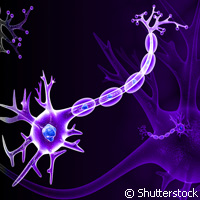Quebec researchers join ERA-NET NEURON
Quebec-based researchers have joined two projects funded under the NEURON ('Network of European funding for neuroscience research') initiative, a Coordinated Action funded under the ERA-NET scheme of the EU's Sixth Framework Programme (FP6). The Fonds de la recherche en santé du Québec (FRSQ), which signed up to NEURON in 2009, said cooperating with European partners effectively helps the Canadian province gain a stronger foothold in the mental health research field. Projects seeking funding from the NEURON ERA-NET must include researchers from no less than three countries involved in the scheme. According to the Quebec funding agency, this was the first ERA-NET NEURON joint transnational call to which Quebecers could apply since the FRSQ entered the partnership in 2009. The NEURON assessment committee received letters of intent from 103 teams, of which 24 involved Quebecers. A total of 32 groups were asked to submit complete applications, and 6 teams listed members from Quebec. The FRSQ noted that 2 of the 11 multinational projects eventually chosen to obtain funding involved teams from Quebec. 'We are very proud of the success of the teams from Quebec and are exceedingly pleased to be able to provide our top researchers with the means to collaborate with members of an impressive network of European mental health investigators,' FRSQ President and Chief Executive Yves Joanette said in a statement. 'This initiative is in line with the strategy to develop our leadership position in international health research.' The FRSQ will grant CAD 150,000 (around EUR 114,000) each year to the local project teams for 3 years. The teams' collaborators in Europe will obtain support from funding agencies like the FRSQ in their home countries. The Quebec teams involved in NEURON will investigate the genetic mechanisms of autism and schizophrenia, and assess perinatal stress and its epigenetic impacts on depression. The Canadian researchers will perform their work with teams from Germany, Spain, France and Italy. Heading up one of the Quebec teams is Dr Guy Rouleau of the Centre Hospitalier Universitaire (CHU) Saint-Justine. He will collaborate with German, Spanish and French groups to identify the genetic mechanisms that lead to anomalies in brain structure and function seen in people diagnosed with autism or schizophrenia. Dr Rouleau and his team will focus their study on genetic variations in families with certain members diagnosed with autism or schizophrenia. They believe their findings could provide the impetus researchers need to find new genes linked to these disorders. According to the researchers, autism and schizophrenia have common genetic and molecular bases. They will perform imaging and genetic analyses, and verify their results in mutant mouse models. Their work will lead to an integrated approach for investigations into autism and schizophrenia. The second research project will investigate prenatal, perinatal and postpartum stress, and its epigenetic impacts on depression. The team, which involves Canadians, Italians and Germans, will assess the phenomenon in different species. Led by Dr Moshe Szyf of McGill University in Montreal, the Quebec team will study monkeys, the Italians will assess rodents and the Germans will investigate the subject in humans. Their project will effectively shed light on the epigenetic signatures that could be used to predict whether mental disorders will emerge, to make diagnoses, and help prevent and treat conditions. ERA-NET NEURON is advancing neuroscientific and mental health research in Europe and beyond.For more information, please visit: NEURON ERA-NET:http://www.neuron-eranet.eu/Fonds de la recherché en Santé du Québec (FRSQ):http://www.frsq.gouv.qc.ca/en/index.shtmlERA-NET actions FP6 and FP7:http://ec.europa.eu/research/fp7/index_en.cfm?pg=eranet-projects-home
Countries
Canada



